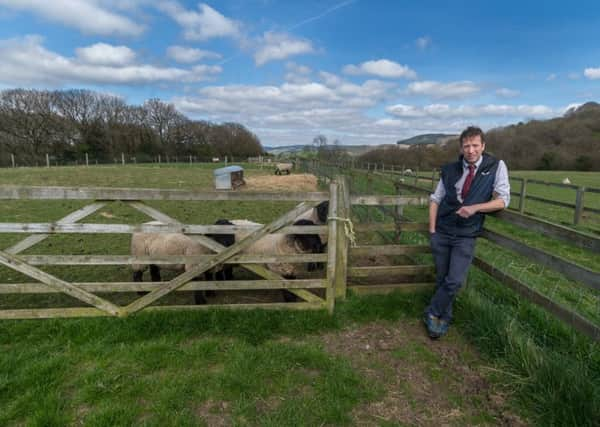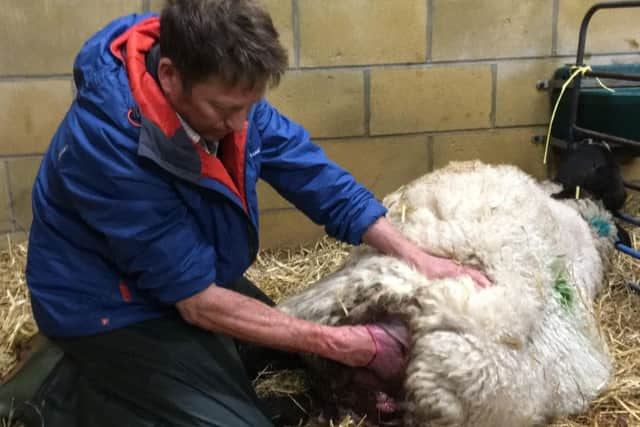Julian Norton: A night of little sleep but the thrill of a job well done


When I arrived at the farm to see the heifer, which was struggling to calve, Victoria, the farmer’s daughter, was waiting for me.
“Oh, thank you for coming so quickly,” she said, clearly upset.
Advertisement
Hide AdAdvertisement
Hide Ad“It’s a nightmare. This heifer is calving and James has just been rushed to hospital. She came at him when he went in to check her and he got squashed against the wall and banged his head.


“He passed out and that’s when Dad called me to come and help. They are on their way to hospital now, so you and I are in charge of the heifer!”
The ambulance I had passed had been rushing the injured James to A&E. It was a stark reminder of just how dangerous it can be dealing with cattle.
Luckily for me the Limousin cross heifer was, by now, safely fastened in the cattle crush. It was a big calf and very tight so I needed the help of a calving jack, but all went smoothly and it was not long before it was spluttering its first breaths in the straw, the new mother instinctively licking it dry and coaxing it to its feet.
Advertisement
Hide AdAdvertisement
Hide AdAs I cleaned my wellies under an outside light, surrounded by the pitch black of the early hours, I knew that I would soon be back in bed, unlike poor Victoria, who would be on her way up to the James Cook hospital.


Sadly, my time back in bed was only short-lived. At 3am I was woken again by the persistent beep of my pager. There was a sheep to lamb - she had been messing about for six hours and nothing had happened.
I made my way back along the road to Sutton bank for the second time in three hours. There were no ambulances this time, but the plight of the enormous Suffolk ewe was every bit as much of an emergency as my previous call.
She was suffering from a condition called “ring-womb”, whereby the cervix fails to dilate properly, obstructing the birth canal. This is a bad thing to have at 3am, because the only way to deal with it is by slow, patient dilation of the cervix using a gentle hand. It cannot be rushed and the whole process can take quite some time.
Advertisement
Hide AdAdvertisement
Hide AdThe farmer, Janet, and I were as relieved as the Suffolk when I had finally managed to correct the ring womb and two healthy lambs were delivered, just as the first glimmer of daylight started to appear.
Nights like this are always tough, as we are straight back to work in the morning and there is rarely any opportunity to catch up on the lost sleep.
Driving home from Janet’s farm though, I still felt the almost immeasurable satisfaction of bringing new life into the world. Even after 20 years of doing this, the thrill never gets less.
Janet called into the practice the next morning to report that all was well with ewe and lambs. I phoned Victoria to check on everyone’s health - both human and bovine. James had been discharged from hospital after a series of CT scans, pelvic braces and lots of morphine. Thankfully there were no major breaks. The heifer and her calf were both doing well too. It had been a tough night for us all.
The Yorkshire Vet continues on Channel 5 this Tuesday at 8pm.